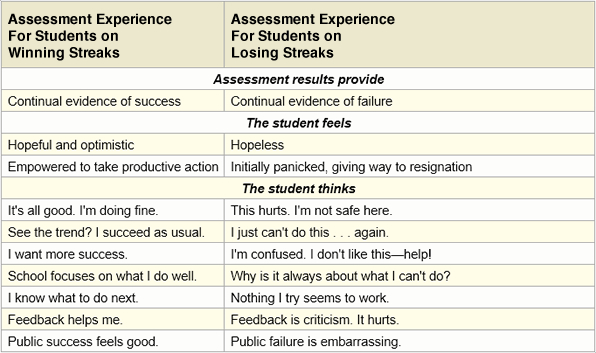 It’s an exciting and challenging time to be an adult in the world of K12 education. Everyone, including the 50 Chief State School Officers, staff at every SEA and LEA, classroom teachers, principals, school administrators, parents, school board members and even the folks at the many K12 education and assessment organizations, are all working hard to grow the possibility of more kids in the US being college and career ready. That means we’re supporting the change to more challenging standards for all kids and new assessments that better measure the higher order thinking skills that are critical to college and career readiness. This change is a serious task – it represents our shared goal of wanting every student to have the opportunity to pursue their goals for college or career. And it won’t be easy – in a recent study by College Board, we learned that only 43% of SAT takers in the high school class of 2013 earned a score that indicates they will succeed in the first year of college and that percentage has remained “virtually unchanged” for at least five years.
It’s an exciting and challenging time to be an adult in the world of K12 education. Everyone, including the 50 Chief State School Officers, staff at every SEA and LEA, classroom teachers, principals, school administrators, parents, school board members and even the folks at the many K12 education and assessment organizations, are all working hard to grow the possibility of more kids in the US being college and career ready. That means we’re supporting the change to more challenging standards for all kids and new assessments that better measure the higher order thinking skills that are critical to college and career readiness. This change is a serious task – it represents our shared goal of wanting every student to have the opportunity to pursue their goals for college or career. And it won’t be easy – in a recent study by College Board, we learned that only 43% of SAT takers in the high school class of 2013 earned a score that indicates they will succeed in the first year of college and that percentage has remained “virtually unchanged” for at least five years.
In support of this goal, adults are focused on implementing a multitude of changes in K12 education – changes that we know will impact almost every student in grades 3 – 12 – yet in our focus to prepare schools, it seems that we may be under-preparing the students themselves. While most adults in education understand that changing standards, new assessments and higher proficiency benchmarks will impact student performance on the new tests, are we truly considering the impact of this on the student’s learning, self-perception, and personal hope for their futures?
Rick Stiggins, founder of the Assessment Training Institute, has always been focused on student learning and has been writing on this topic for many years. In a great 2007 article in Educational Leadership titled “Assessment through the Student’s Eyes“, he wrote, “Today’s schools are less focused on merely sorting students and more focused on helping all students succeed in meeting standards. This evolution in the mission of schools means that we can’t let students who have not yet met standards fall into losing streaks, succumb to hopelessness, and stop trying.”
Stiggins provides a fascinating chart where he presents his thinking on the impact of assessment on students – a portion of this chart is presented below for your consideration.

While Stiggins’ writing was focused more on moving towards assessment for learning or formative assessment practice, his thinking and views reflect a concern that is very relevant now as we transition to new assessments and standards in the US. Stiggins’ chart provides a way to consider how students might think and feel during this transition to new standards, assessments and proficiency benchmarks, and consider what we can do to support students through this time of change.
It is important that we work on helping students understand that when standards increase in difficulty, rates of proficiency will drop for many students – BUT it is also likely that their own achievement and learning will not decrease.
There are a number of things that educators, policy makers, parents and assessment publishers can do to help students become managers of their own learning.
Perhaps we can:
– Provide some fundamental assessment literacy, including clear explanations of these new summative, interim and classroom assessments, clarify that assessments have different purposes, and demonstrate how these new assessments can help them achieve their own goals
– Establish a process to produce reasonable comparisons of current interim test results to prior interim test results. Many school systems that have maintained records of their own student achievement measures in the past can use that data now to help students see whether their test scores have actually declined, or if students are still making improvements from year to year in math and reading
– Ask students for their feedback and perspectives on these new changes and how we can make assessment more meaningful for them in their learning process.
Here’s a question for you: How are you helping students manage this transition?